How Destiny 2's narrative team wrangled 10 years of lore into a perfect finale with The Final Shape: "Magic has been so important to this franchise"
We talk bringing back Cayde, meeting player expectations, and how The Final Shape came together with two of Destiny's Narrative Directors
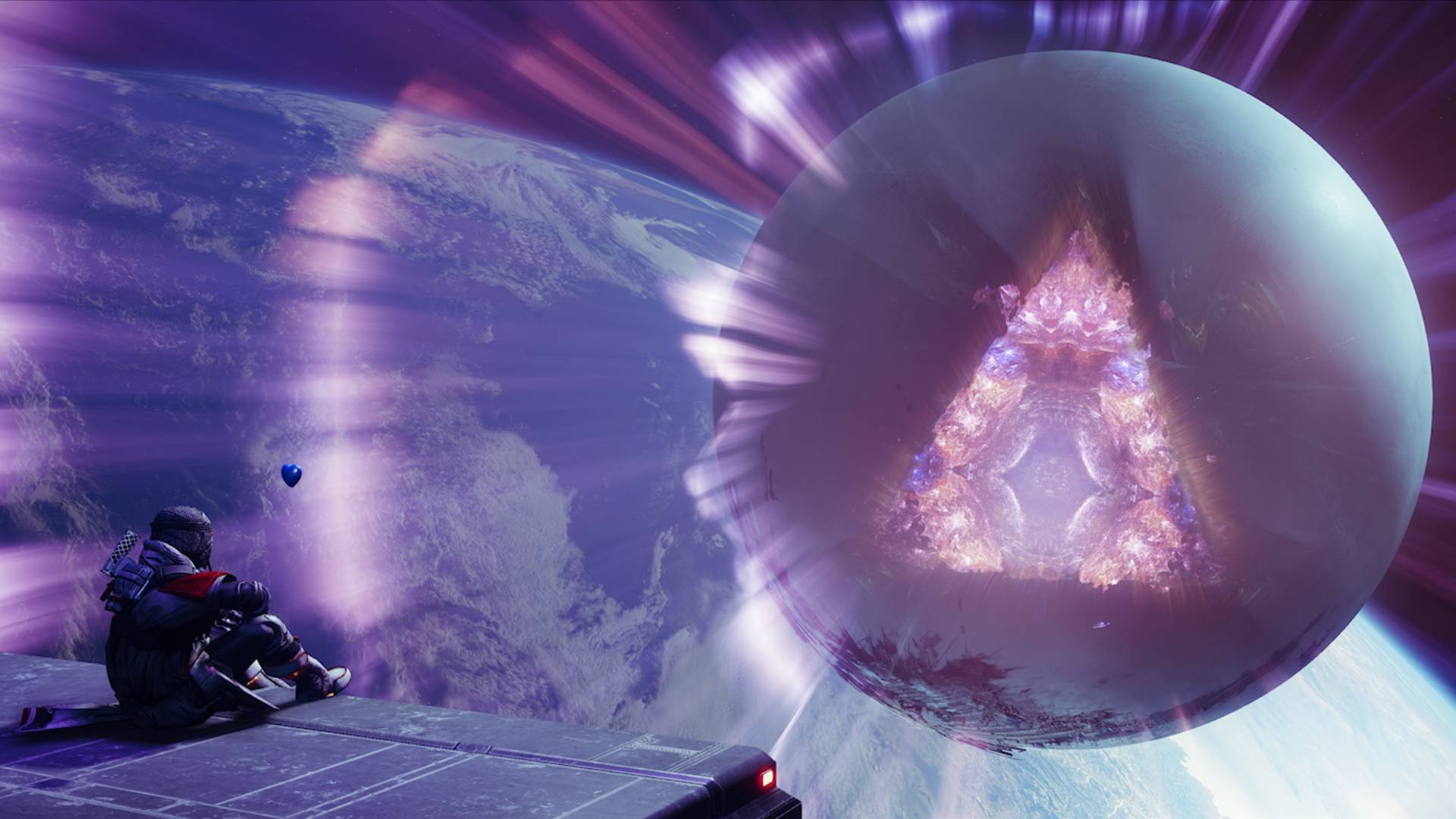
In the lead up to Destiny 2: The Final Shape, I had many conversations with a friend about how Bungie could wrap up the Light and Darkness Saga. Who's going to die? How is Cayde back? How will we beat the Witness? What's going to happen afterwards? Will the Witness even die? With almost a decade's worth of lore and so many characters at play, I had resigned myself to thinking that bringing everything together in a satisfying conclusion was an utterly impossible endeavor for the studio.
And yet, I think Bungie pulled it off. In my Destiny 2: The Final Shape review, I said that the developer delivered "a monumental expansion for its space magic FPS that somehow pays off a decade-long rollercoaster of endless war", and once I had finished the Destiny 2 Excision mission and gazed into the mesmerizing aurora surrounding the Traveler for a good five minutes, I couldn't stop thinking about the challenges of bringing it together. So, to sate my curiosity, I asked Destiny 2 narrative director Alison Lührs and Destiny Universe narrative director Julia Nardin how they and their team created such a gripping finale to Destiny's first saga.
Major spoilers for Destiny 2: The Final Shape to follow
Getting into shape
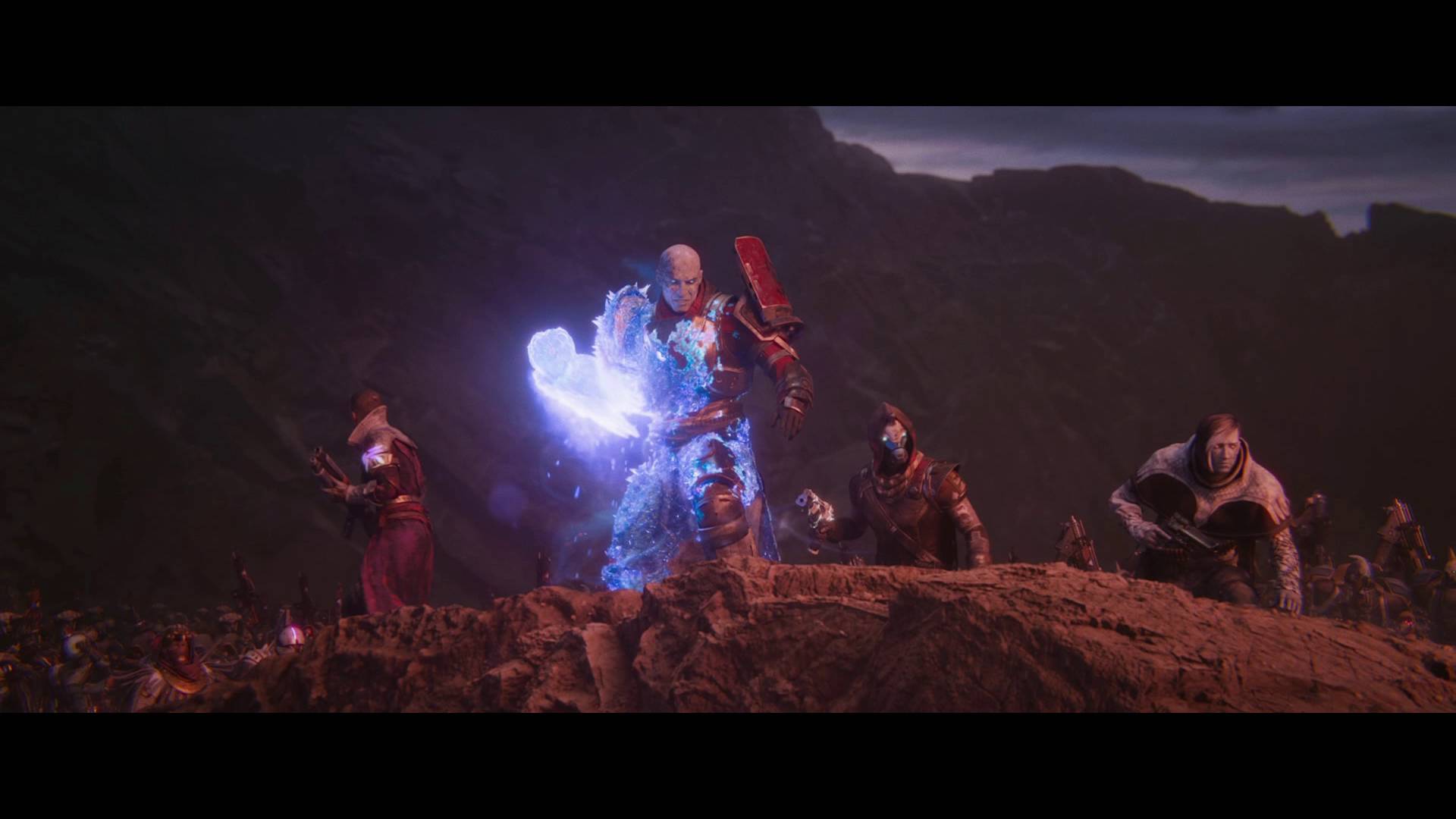
To me, the first challenge seems to be knowing where to even start. Where do you focus your attention when you're trying to tie up so much while sowing story seeds for the future? "When you've got a story that's 10 years in the making, you end up with a lot of characters and interwoven plot threads, and only so much narrative real estate to include everyone in a release like Final Shape," says Nardin. "We made the decision to focus on a handful of characters, like the Vanguard and the allies that the players have been fighting hard for for the last couple of years."
Of course, getting to this starting point was a long road. Nardin says that since she joined Bungie in October 2019 to work on Season of Arrivals, there has been a targeted effort to tell a stronger story – largely through leveraging characters. "I remember very early conversations, as early as Arrivals, about us needing to put Uldren back on the board," Nardin explains. "We found a way to get Savathûn in front of players without immediately recognizing that it was Savathûn, knowing that she was going to be the antagonist of Witch Queen. We prioritized the formal introductions of Caiatl and Mithrax, who existed in the lore and that we wanted to be the representatives for these other factions that would be coming into this fight with us in The Final Shape."
Additionally, Lührs says that bringing all these narrative ideas together required a central theme to act as the "storytelling glue". "'Purpose' was the theme that we identified early on, and we wanted to use that as kind of the through line for every characters' arc for our journey against the Witness," she says.It's a thing that wants to eliminate purpose by saying, "I have chosen it for you". And so being able to use that at a textual level, so that we could always come back to that through line, helped us from getting too far off in the weeds of anyone's story."
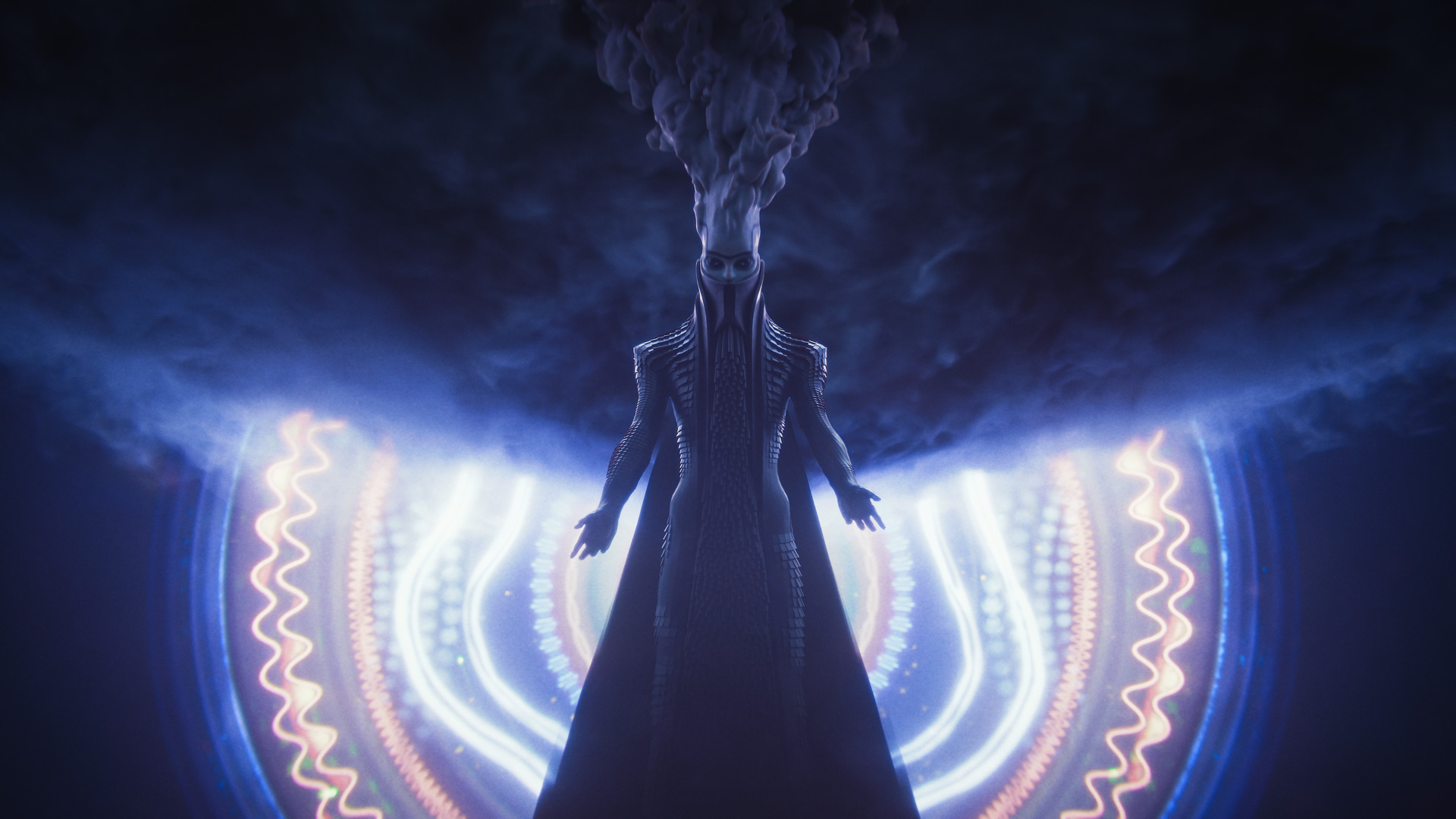
I think magic has been so important to this franchise.
Julia Nardin
While that narrow, character-driven and thematic focus was integral to the success of The Final Shape's story, it meant a lot of ideas had to be nixed. Even so, the narrative snippets left on the cutting room floor are never binned forever. I asked Nardin and Lührs about what didn't make it into the expansion, but they stayed tight-lipped, pointing out that sharing what was left out would spoil some surprises down the line. However, Lührs teases that the narrative team "made a whole Episode about it, so you're just going to have to find out".
Sign up to the GamesRadar+ Newsletter
Weekly digests, tales from the communities you love, and more
Importantly, this focus also helped the narrative team avoid telling a "very broad and shallow story," according to Lührs. One of my own fears going into Destiny 2: The Final Shape was that it would be all style and set pieces with no substance. The Pale Heart destination and Prismatic subclasses looked fantastic, but it all had to be backed up by some serious narrative chops to stick the landing, and I'm very glad to have been proven wrong.
Nardin explains that The Final Shape had to be a resolution for the last 10 years, so decisively taking down the Witness was obviously a key story beat to hit. But with the entire campaign taking place within the Traveler's Pale Heart, it was also a good opportunity to "provide some answers as to how the Light functions and the relationship between Ghosts, Guardians, and the Traveler," though Nardin points out that keeping things somewhat vague in this regard was intentional. " [...] We didn't want to be too explicit about it, because when you are too explicit about it, the magic vanishes, and I think magic has been so important to this franchise. We didn't want it to evaporate."
Although, with Commander Zavala, Ikora Rey, and Cayde-6 taking center stage together for the first time since Destiny 2's launch in 2017, Nardin points out that The Final Shape also offered a chance for some much-needed catharsis. "It meant restoring the Vanguard in a way that would feel impactful and earned for our players, and it also meant finding closure for Cayde in a way that we weren't able to do with Forsaken," she says.
Ace in the hole
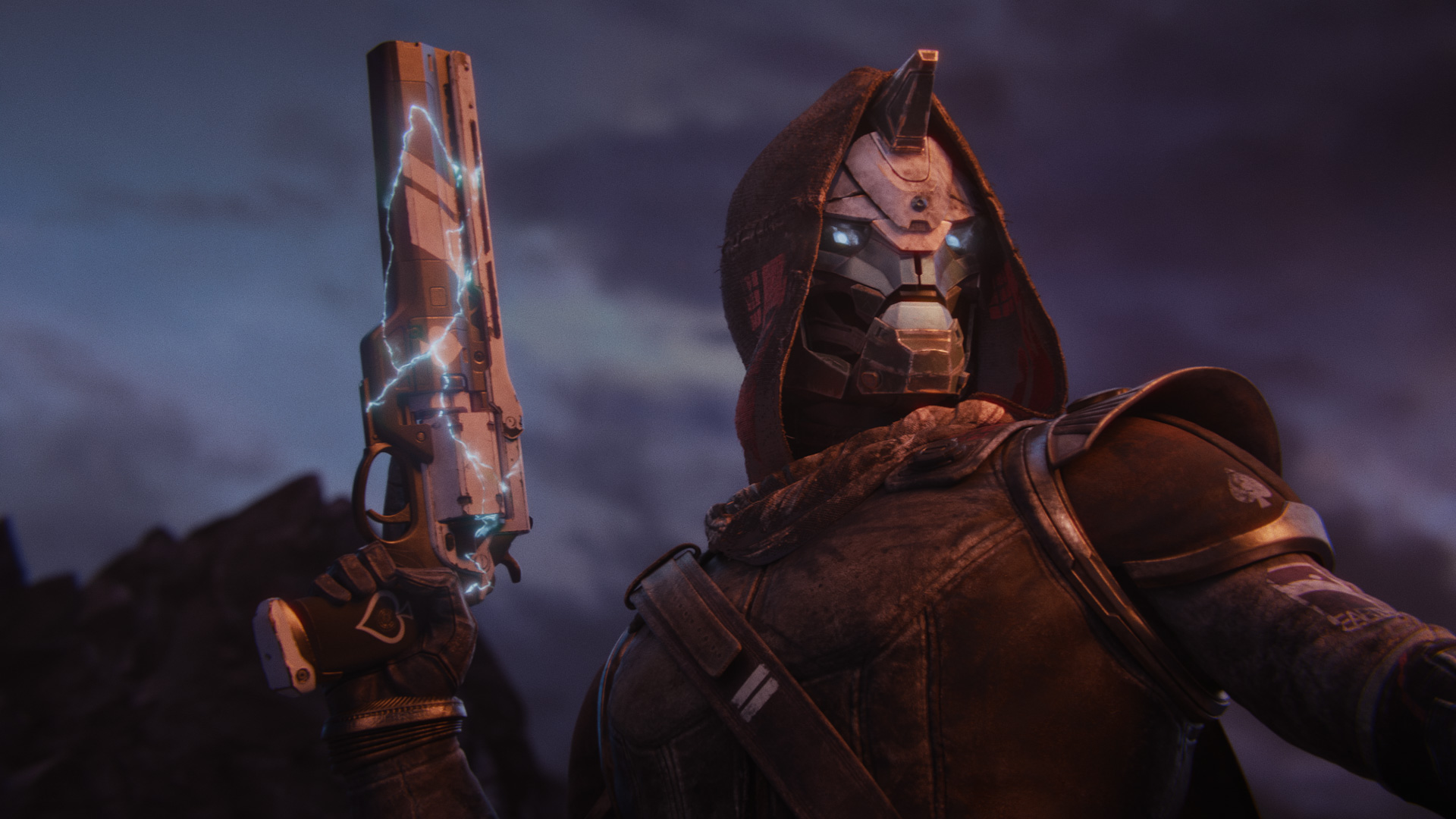
The reveal of Cayde's return in The Final Shape's teaser trailer back in May, 2023, was a welcome surprise. As Destiny's resident comic relief character, his absence was noticeable after Forsaken, particularly as we began veering into more serious, character-driven stories after 2019's Shadowkeep. But I also couldn't help but wonder why he was coming back. Obviously, the Destiny community went into a theory-crafting frenzy for a lore-accurate justification, but bringing back a fan-favorite character for one last hurrah seemed to me, at the time, like a nostalgia play to get players interested.
We needed there to be a loss in this release, and it felt right for it to be Cayde.
Julia Nardin
But, as Nardin explains, Cayde's comeback was a perfect fit for relaying some of those revelations about the Light and the Traveler. She says: "If everything that comes from the Light returns to the Light, we had a unique opportunity to show that with an existing character. Given the characters that we were working with – Zavala, Crow, Ikora, Mara – it made the most sense to use Cayde to do that."
"I also feel as though there's this darkness – there's an edge – to Cayde that we saw more of in Destiny 1 that we really wanted to bring back for The Final Shape, tonally, because that's actually the core of who he is and I think what Destiny is," adds Nardin. "He jokes because he's viscerally aware of how real the stakes are. He's incredibly dangerous, like a knife you think is safe to run your fingers on – it's not."
"He's also grieving the loss of his Ghost, Sundance, in this release, for which he feels personally responsible. It's why he's so protective over Glint and why he ultimately chooses to sacrifice his second chance to give one to the player's Ghost. That was a story that we really wanted to tell. We needed there to be a loss in this release, and it felt right for it to be Cayde."
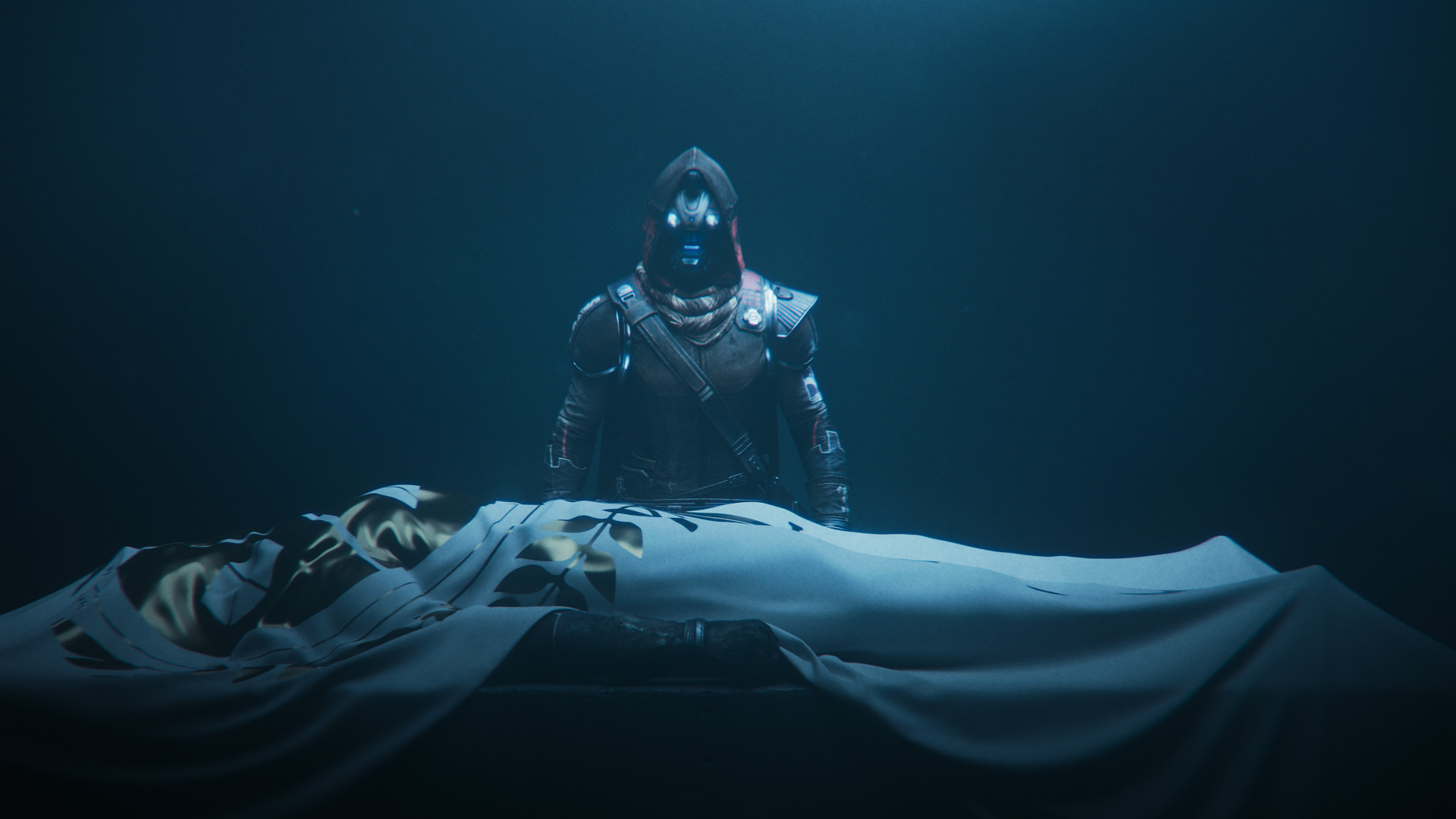
I, and I think many other players, certainly didn’t expect Cayde's time in the campaign to be so impactful through both the levity and gravity he brings. Nardin describes The Final Shape as probably the "most human expansion in terms of motivation and framing", and, for me, Cayde's second chance is a huge part of that, which really caught me by surprise.
To create those surprises, Bungie aims to "absolutely nail" some player expectations – Nardin says learning about the Witness and paying off the relationship between Guardians, Ghosts, and the Traveler were priorities, for example – and completely subvert others. Lührs says that Cayde’s characterization falls into the latter. “[...] We were interested in giving him permission to explore the rest of his emotional range. Making him uncertain about his resurrection and grieving his separation from Sundance was a powerful choice, and it turned Cayde into a wise fool rather than just a comedic sidekick,” she says.
Cooperative Focus
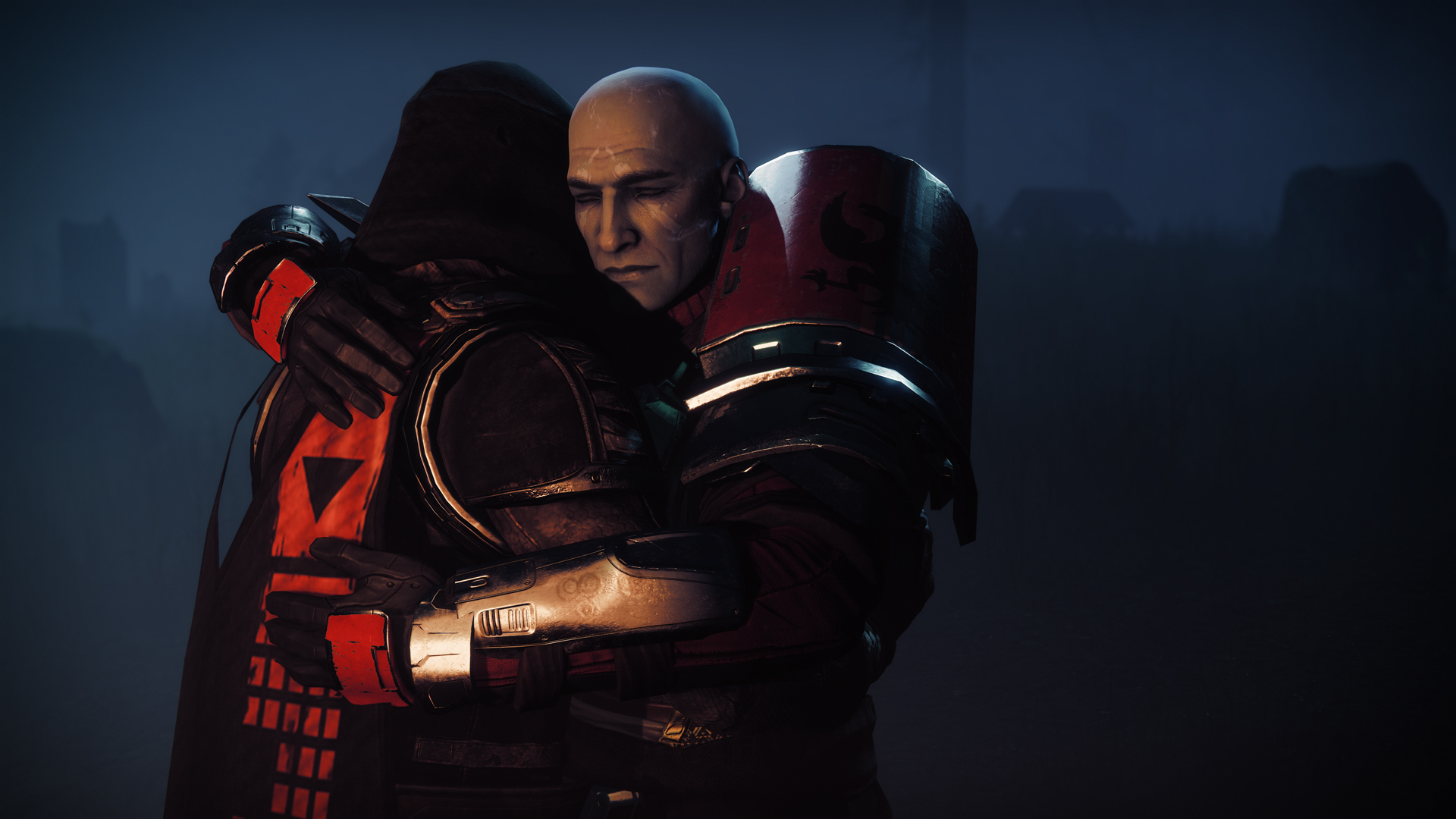
As well as thinking about the players, Lührs and Nardin must also contend with Destiny 2's inherent complexity, both in terms of its expansive lore and live service model. When I ask about the sorts of limitations they face, Lührs and Nardin are quick to say there are "so many!". Lührs elaborates: "It's everything from, 'how many lines do we get for this season or release to spread around?', [to] design limitations – 'what do we need to make sure that we're leaving room for so that we're not having a heavy conversation while also trying to blast some Vex?'
I love that this has taught all of us the value of storytelling and the value of narrative, and I'm excited to share where we're going next.
Alison Lührs
Lührs also points out that these restrictions can be useful as there are always creative solutions to find. Although, figuring out these paths, or even coming up with story ideas doesn't, just fall to the narrative team either. Nardin says that narrative design is a "cross-disciplinary process" that involves collaborating with everyone else at Bungie. "Some of the best ideas don't even come from narrative, they come from our partners in other disciplines," she says. "Everyone working on [Destiny 2] loves the game, and they can come at it from the lens of a storyteller, even if that's not their discipline."
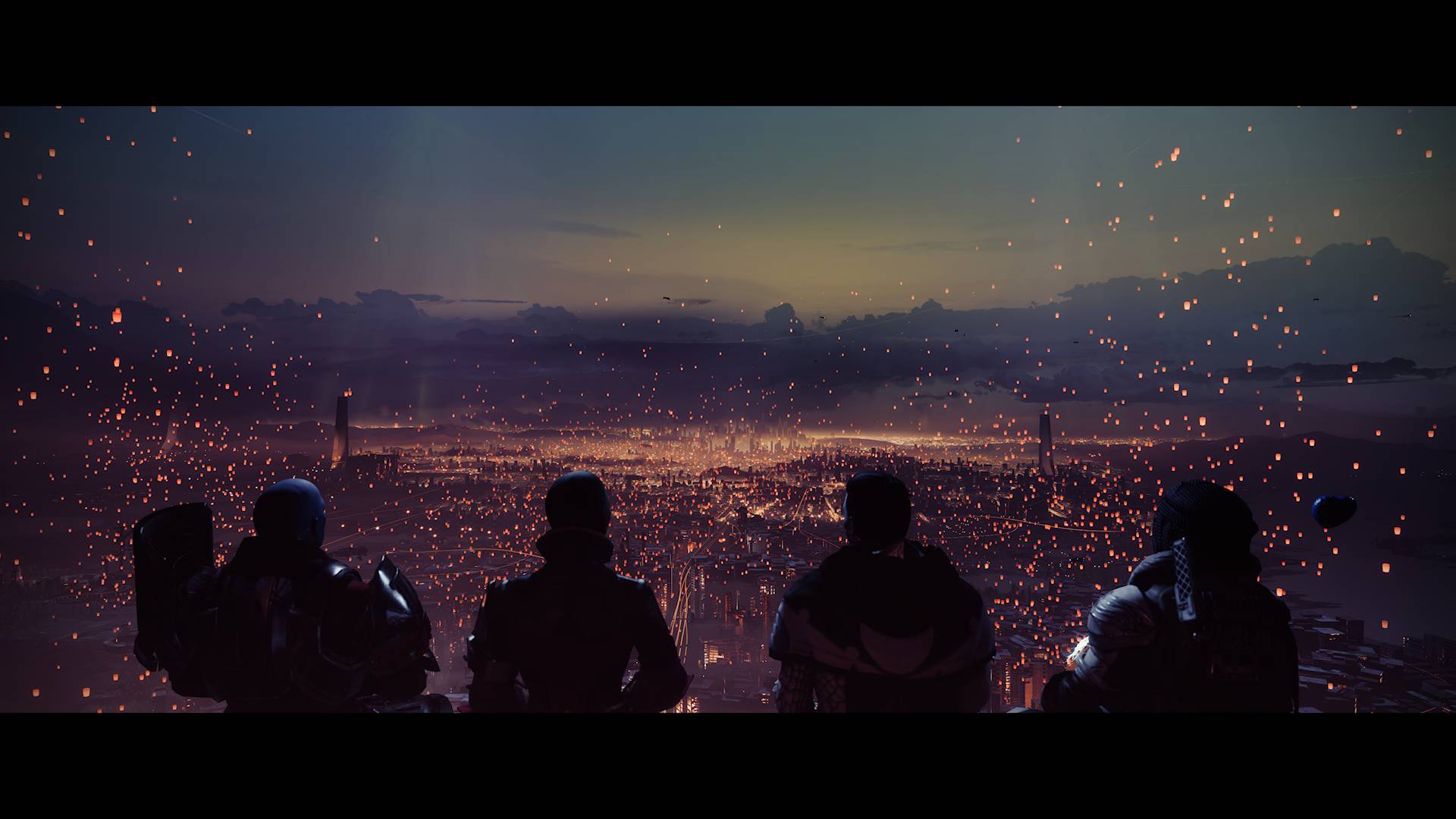
Ultimately, these combined narrative design efforts helped create Bungie’s “love letter” to the Destiny community, which was the biggest priority according to Nardin. “They've been on this journey with us for as long as Bungie has, and they deserved an epic conclusion for the saga, so we can move forward together into the franchise's future,” she says, later adding: “We made a conscious decision to go all in on narrative for this release. And when we saw the reaction of the community, that reaffirmed for us that it was the right choice.”
Lührs wishes that if she were able to give her past self working on The Final Shape some advice, it would be to "trust your gut". "The best practices of telling a story are trusting in the characters that you have and allowing them to go on the journey that they need to go on,” she says. “I love that this has taught all of us the value of storytelling and the value of narrative, and I'm excited to share where we're going next."
While the first post-Final Shape Episode, Echoes, has been off to a slow start, the peek behind the curtain from Lührs and Nardin has revealed so much about the challenges that the narrative team faces. It's a colossal effort that I certainly don't envy, and has made me respect the Destiny 2 team's efforts even more. Of course, change and improvements are always going to be slow with a game as massive as this, but, as Nardin says, "the future of the franchise is very bright, and Bungie cannot wait to share it with you."
The Final Shape has even allowed me to become an MMO healer in Destiny 2 thanks to a new Exotic helmet.
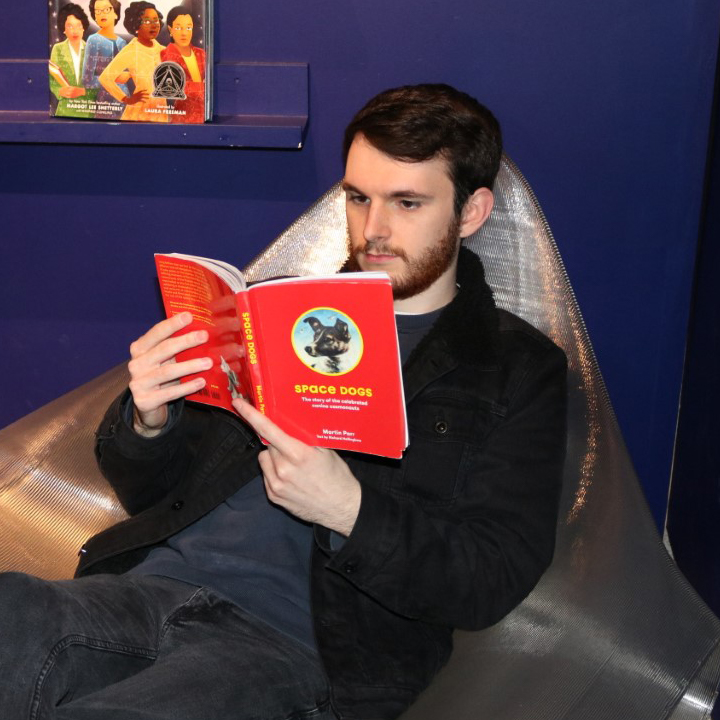
Will Sawyer is a guides writer at GamesRadar+ who works with the rest of the guides team to give readers great information and advice on the best items, how to complete a particular challenge, or where to go in some of the biggest video games. Will joined the GameRadar+ team in August 2021 and has written about service titles, including Fortnite, Destiny 2, and Warzone, as well as some of the biggest releases like Halo Infinite, Elden Ring, and God of War Ragnarok.


